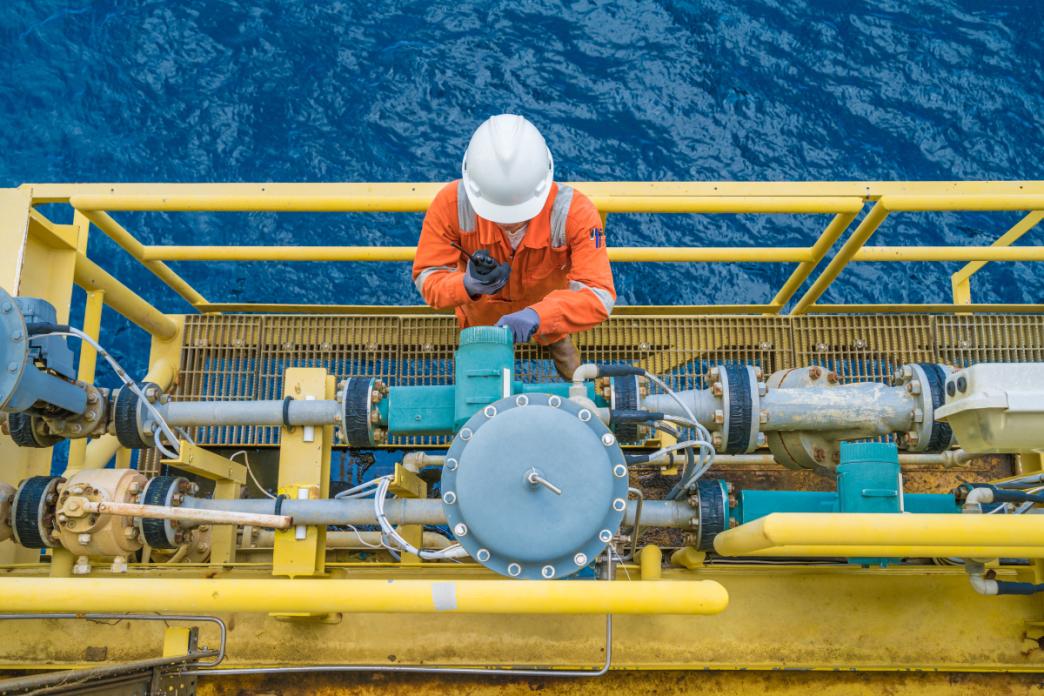
EU Must Put Oil, Gas, and Mining Companies in the Spotlight
Français »
This post originally appeared on EURACTIV.
EU lawmakers have a chance to mitigate the dangers posed by extractives. Oil, gas, and mining operations present major risks and need stricter controls, write Elisa Peter and Robert Pitman.
Oil, gas, and mining operations are loaded with risks. They pose risks to our climate, where the impact of our addiction to fossil fuels is more visible every day.
They hold risks for our economies, which can be seen in our soaring energy costs and the endless volatility of global commodities markets. They are a risk to democracy by helping to prop up dictators and kleptocrats.
They are risky for people who live near extraction sites worldwide, where human rights abuses and environmental degradation are often rife. And they are risky for investors, financially and reputationally.
To tackle all these dangers – and create a more sustainable world – it is critical that the companies behind these operations disclose the true scale and nature of their businesses’ impacts. The European Union (EU) is currently at a critical stage in deciding how this should be done.
The EU is in the midst of overhauling its legislation requiring companies to disclose information on their businesses’ social and environmental impacts, replacing the Non-Financial Reporting Directive (NFRD) with the Corporate Sustainability Reporting Directive (CSRD).
This has now reached a crucial stage, with negotiations on the final text currently taking place – ‘trilogues’ in EU jargon – and expected to conclude before France hands over the presidency of the Council of the EU at the end of June.
Unfortunately, Pascal Durand, the French MEP leading the European Parliament’s negotiating team, and his sparring partner, the French Secretary of State Olivia Grégoire, have so far failed to squarely address extractive industries in the talks.
The European Parliament has shown it understands where the greatest dangers lie: in March, it voted to prioritise developing transparency rules for oil, gas, mining, and other high-risk sectors in the CSRD. It’s uncertain member states will follow, and as welcome as this is, it is not enough.
Piercing the veil
Most people agree that the sustainability information companies should be required to produce should equal the scale and severity of the risks. Because these risks are so big for the extractive industries, these companies need to produce specific sustainability information targeting these issues.
In concrete terms, this means that policymakers, investors, civil society, and ordinary citizens should be able to access information at the level of specific mining or drilling projects.
The good news here is that this does not require sweeping changes: the EU already requires oil, gas, and mining companies to provide this level of detail for other non-financial reporting in Chapter 10 of the Accounting Directive.
Ensuring that sustainability disclosures are consistent with this is therefore not a leap in the dark, but in fact will prevent the new transparency rules from undermining existing EU legislation, which the EU Commission has recognised are already “used by a lot of civil society to question companies and hold them to account”.
Compelling reasons
Not all extractive industry projects are the same. Climate change shows that some are clearly more susceptible to sustainability risks.
Key international institutions, including the United Nations Environment Program and the International Energy Agency, note that large shares of discovered oil and gas resources will need to remain undeveloped if the world is to meet the Paris Agreement’s targets.
In line with these conclusions, major investors have expressed the ambition to steer their dollars toward companies that are taking serious steps in this direction.
To make this happen, project-level information is essential. Therefore, it is no surprise to learn that companies such as Exxon Mobil are already sharing data at this level of granularity with company decision-makers.
Making this information publicly available would bring huge benefits, allowing investors, policymakers, and interested citizens to understand which projects are most at risk and plan accordingly.
Project-level information is also critical for those directly affected by oil, gas, and mining projects to understand their wider social and environmental impacts. This includes pumping greenhouse gas emissions into the atmosphere, polluting land and water, destroying biodiversity, threatening human health, fuelling conflicts, human rights abuses, and fostering corruption.
Finally, if lawmakers had the appetite to go further, they would require oil, gas, and mining companies to publish the contracts they agree with producing countries.
These are key documents detailing the relationship between companies and foreign governments and setting out how risks and rewards of extraction are shared between companies, governments, and their citizens.
Longstanding civil society advocacy for #DiscloseTheDeal has resulted in publication these extractive industry contracts in close to 50 countries. Still, EU requirements could help make contract disclosure more consistent and comprehensive.
For decades, civil society groups worldwide have argued that only greater transparency and accountability can put an end to the devastating impacts of extractive projects.
In the coming days and weeks, the EU has the chance to take the next step and make oil, gas, and mining truly accountable and transparent. It must not let the opportunity pass.
Elisa Peter is executive director of the Publish What You Pay movement. Robert Pitman is a senior governance officer at the Natural Resource Governance Institute.
This post originally appeared on EURACTIV.
Photo by Oil and Gas Photographer for Shutterstock
This post originally appeared on EURACTIV.
EU lawmakers have a chance to mitigate the dangers posed by extractives. Oil, gas, and mining operations present major risks and need stricter controls, write Elisa Peter and Robert Pitman.
Oil, gas, and mining operations are loaded with risks. They pose risks to our climate, where the impact of our addiction to fossil fuels is more visible every day.
They hold risks for our economies, which can be seen in our soaring energy costs and the endless volatility of global commodities markets. They are a risk to democracy by helping to prop up dictators and kleptocrats.
They are risky for people who live near extraction sites worldwide, where human rights abuses and environmental degradation are often rife. And they are risky for investors, financially and reputationally.
To tackle all these dangers – and create a more sustainable world – it is critical that the companies behind these operations disclose the true scale and nature of their businesses’ impacts. The European Union (EU) is currently at a critical stage in deciding how this should be done.
The EU is in the midst of overhauling its legislation requiring companies to disclose information on their businesses’ social and environmental impacts, replacing the Non-Financial Reporting Directive (NFRD) with the Corporate Sustainability Reporting Directive (CSRD).
This has now reached a crucial stage, with negotiations on the final text currently taking place – ‘trilogues’ in EU jargon – and expected to conclude before France hands over the presidency of the Council of the EU at the end of June.
Unfortunately, Pascal Durand, the French MEP leading the European Parliament’s negotiating team, and his sparring partner, the French Secretary of State Olivia Grégoire, have so far failed to squarely address extractive industries in the talks.
The European Parliament has shown it understands where the greatest dangers lie: in March, it voted to prioritise developing transparency rules for oil, gas, mining, and other high-risk sectors in the CSRD. It’s uncertain member states will follow, and as welcome as this is, it is not enough.
Piercing the veil
Most people agree that the sustainability information companies should be required to produce should equal the scale and severity of the risks. Because these risks are so big for the extractive industries, these companies need to produce specific sustainability information targeting these issues.
In concrete terms, this means that policymakers, investors, civil society, and ordinary citizens should be able to access information at the level of specific mining or drilling projects.
The good news here is that this does not require sweeping changes: the EU already requires oil, gas, and mining companies to provide this level of detail for other non-financial reporting in Chapter 10 of the Accounting Directive.
Ensuring that sustainability disclosures are consistent with this is therefore not a leap in the dark, but in fact will prevent the new transparency rules from undermining existing EU legislation, which the EU Commission has recognised are already “used by a lot of civil society to question companies and hold them to account”.
Compelling reasons
Not all extractive industry projects are the same. Climate change shows that some are clearly more susceptible to sustainability risks.
Key international institutions, including the United Nations Environment Program and the International Energy Agency, note that large shares of discovered oil and gas resources will need to remain undeveloped if the world is to meet the Paris Agreement’s targets.
In line with these conclusions, major investors have expressed the ambition to steer their dollars toward companies that are taking serious steps in this direction.
To make this happen, project-level information is essential. Therefore, it is no surprise to learn that companies such as Exxon Mobil are already sharing data at this level of granularity with company decision-makers.
Making this information publicly available would bring huge benefits, allowing investors, policymakers, and interested citizens to understand which projects are most at risk and plan accordingly.
Project-level information is also critical for those directly affected by oil, gas, and mining projects to understand their wider social and environmental impacts. This includes pumping greenhouse gas emissions into the atmosphere, polluting land and water, destroying biodiversity, threatening human health, fuelling conflicts, human rights abuses, and fostering corruption.
Finally, if lawmakers had the appetite to go further, they would require oil, gas, and mining companies to publish the contracts they agree with producing countries.
These are key documents detailing the relationship between companies and foreign governments and setting out how risks and rewards of extraction are shared between companies, governments, and their citizens.
Longstanding civil society advocacy for #DiscloseTheDeal has resulted in publication these extractive industry contracts in close to 50 countries. Still, EU requirements could help make contract disclosure more consistent and comprehensive.
For decades, civil society groups worldwide have argued that only greater transparency and accountability can put an end to the devastating impacts of extractive projects.
In the coming days and weeks, the EU has the chance to take the next step and make oil, gas, and mining truly accountable and transparent. It must not let the opportunity pass.
Elisa Peter is executive director of the Publish What You Pay movement. Robert Pitman is a senior governance officer at the Natural Resource Governance Institute.
This post originally appeared on EURACTIV.
Photo by Oil and Gas Photographer for Shutterstock
Authors

Robert Pitman
Senior Governance Officer

